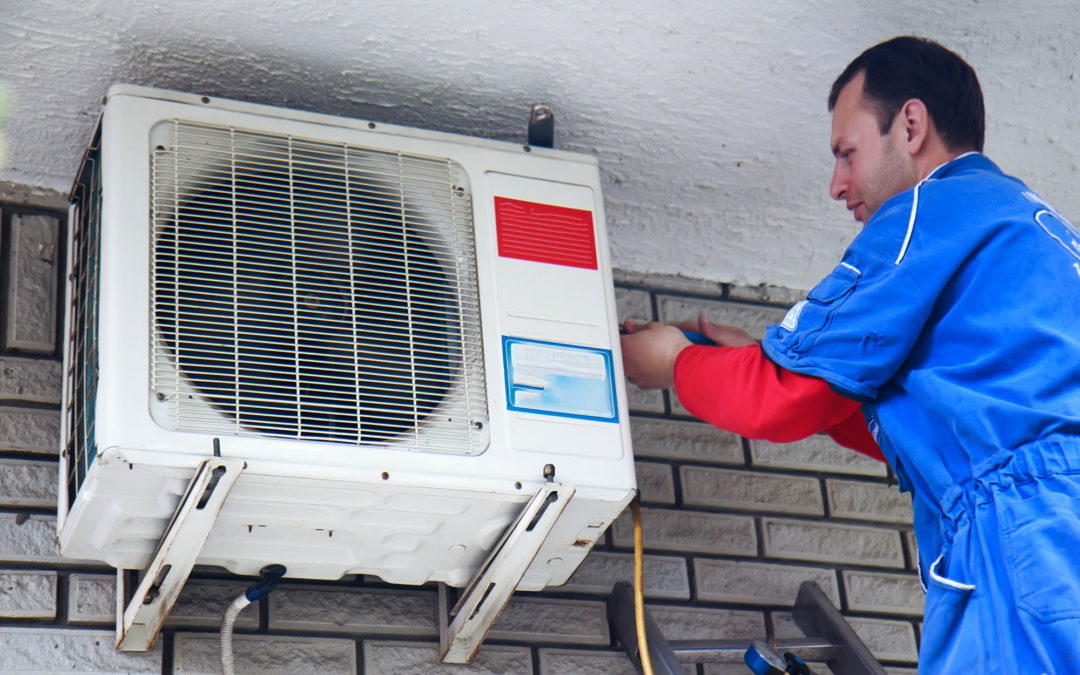As a homeowner, ensuring your HVAC system operates efficiently is essential for keeping a cozy living environment, especially important with changing seasons. The heating, ventilation, and air conditioning system, often known as HVAC, has a vital role in regulating indoor temperatures, providing fresh air, and ensuring proper humidity levels. But, dealing with the challenges of these systems can be intimidating, especially for those that are new to homeownership or are not familiar with the operation of these systems.
In this article, we will explore the top ten HVAC maintenance tips that every homeowner should know. From grasping https://mcdowell-tarp.thoughtlanes.net/a-function-of-heating-ventilation-and-air-conditioning-in-eco-friendly-habitats of how your HVAC system operates to identifying common problems and knowing when to call in a professional, these tips will help you to manage your home's heating and cooling needs. With the right knowledge and practices, you can prolong the life of your system, improve indoor air quality, and finally reduce money on energy bills. We will delve into the essential maintenance strategies that will keep your HVAC system operating efficiently year-round.
Comprehending HVAC Technologies
HVAC is an acronym for heating, ventilation & air conditioning. It refers to the technology that provides indoor environmental comfort through temperature control, moisture control, and atmospheric quality control. A properly engineered HVAC system plays a vital role in ensuring a pleasant and healthy living space, making it an integral component of modern homes.
Heating systems are designed to warming the inside of a building. Common forms include heaters, heat pumps, and boilers. Cooling systems, usually represented by air conditioning units, are designed to cool the indoor air, providing relief during hot months. Air circulation, often including the movement of fresh air, is vital for maintaining indoor air quality, aiding in eliminate pollutants and create a fresh atmosphere.
Comprehending how these systems work together is key to optimal function. The interplay between warmth and cooling regulates indoor temperatures, while adequate ventilation enhances air quality. Acquainting yourself with your HVAC system's parts and roles can enable you to make informed decisions about maintenance, upgrades, and sustainable practices.

Essential HVAC Care Advice
Consistent care of your HVAC equipment is vital for maintaining its performance and durability. One of the easiest yet most effective recommendations is to change your air filter every one or 3 months, based on usage and the style of air filter. Blocked air filters can restrict airflow and cause your unit to operate more leading to higher utility costs and likely damage. Keeping a consistent schedule for replacing air filters not only improves air quality while also enhances the overall functionality of your HVAC unit.
Another vital maintenance recommendation is to schedule yearly professional inspections and tune-ups. A qualified technician can identify and fix issues before they escalate into costly repairs. At these inspections, the technician will clean the coils, check refrigerant levels, and ensure that all components are working properly. This preventative approach not only helps maintain efficiency but also extends the lifespan of your HVAC unit, keeping you costs in the end.
In conclusion, ensuring that your outdoor unit is clear of debris is important for optimal performance. Regularly check for leaves, grass, and other obstructions that could restrict airflow. Keeping the area surrounding your outdoor condenser unit clear allows for improved heat exchange, boosting efficiency. Additionally, think about covering the unit during harsh weather conditions to shield it from potential damage and ensure its functionality when the season shifts.
Efficiency of Energy and Savings on Costs
Boosting the energy efficiency of your HVAC system can lead to substantial cost savings on your utility bills. Regular maintenance, such as replacing air filters and maintaining ductwork, makes sure that your system operates efficiently, lessening the workload on your heating and cooling units. By making small adjustments, like sealing leaks around the windows and doors, you can also prevent treated air from leaking out, which helps your HVAC system run more efficiently and saves money.
Putting money into a smart thermostat can improve energy efficiency. These devices allow you to set heating and cooling schedules according to your lifestyle, ensuring that energy is not spent when you are not home. Additionally, many intelligent thermostats can monitor your energy usage and recommend adjustments to optimize efficiency. The reduction in costs from reduced energy consumption can swiftly offset the initial cost of purchasing a smart thermostat.
Finally, think about investing in energy-efficient HVAC systems that are designed for optimal performance with minimal energy use. Look for AC installation certified by Energy Star, which meet strict efficiency standards. While the upfront investment may be greater, the long-term savings achieved through reduced energy bills and potential subsidies can make it worth the cost. Implementing these energy-efficient practices not only benefits your wallet but also contributes to a greener environment.
